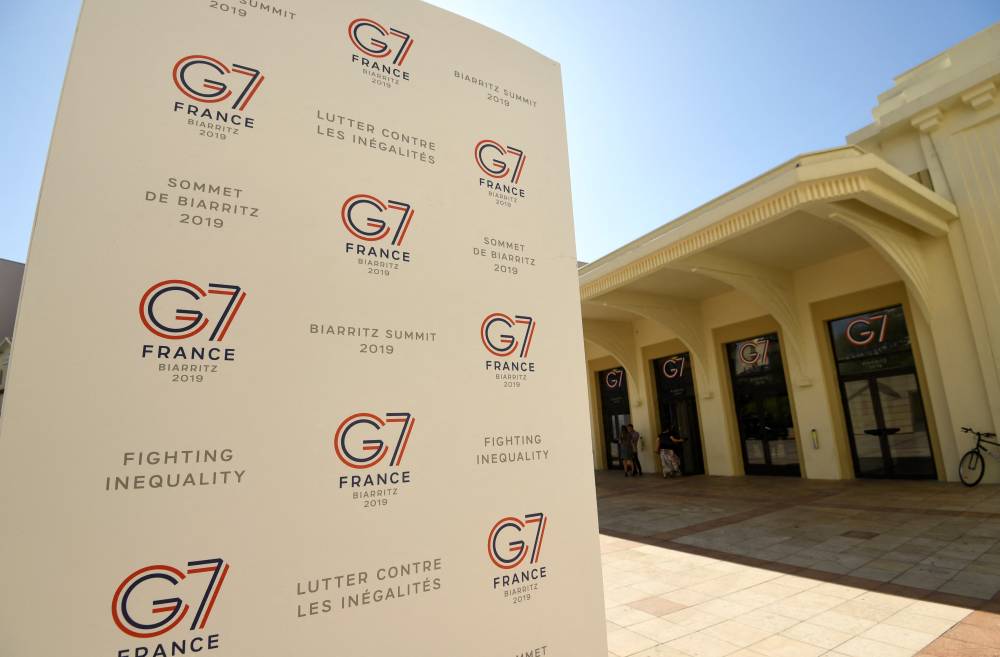Is G7 still relevant…
Today, many are increasingly questioning its relevance.
SALEH MOHAMMED
The Group of Seven (G7) is an inter-governmental political and economic forum (Canada, France, Germany, Italy, Japan, the United Kingdom and the United States; additionally, the European Union (EU) is a "non-enumerated member") - organised around shared values of pluralism, liberal democracy, and representative government.
It is a high-profile venue for discussing and coordinating solutions to major global issues, especially in the areas of trade, security, economics, and climate change.
Together they only contribute about 10 per cent of the world’s population and as of 2021, Crédit Suisse reported the G7 (without the EU) represents around 53 per cent of the global net wealth (including the EU, it is over 60 per cent).
Russia was a formal member (part of the G8) from 1997 until its expulsion in 2014.
At the 1999 summit, the group helped launch the G20, a similar forum made up of the G7 and the next 13 largest economies (including the EU).
G7 is not based on a treaty and has no permanent secretariat but wield significant international influence.
It has been criticised for its allegedly outdated and limited membership, narrow global representation and ineffectualness.
Today, many are increasingly questioning its relevance.
At the 50th Summit in June 2024, global challenges that disproportionately affect countries in the Global South based on the UN Charter were discussed.
The West mantra on democratic principles, free societies, universal human rights, social progress, respect for multilateralism and the rule of law, do not seem to be working at all but working in reverse.
Forget about shared prosperity.
We need more than resolution; we need actions based on solidarity and shared responsibility.
Where is the commitment and respect for the UN Charter, safeguarding international peace and security and uphold the free and open rules-based international order?
Instead of strengthen international laws and rules, there are parties who take the mickey out of the UN by shredding the UN Charter and vitriolic attacks on the ICJ and the ICC.
At the recent Summit, G7 commits to accelerating sustainable infrastructure investment through the Partnership for Global Infrastructure and Investment (PGI).
It will unlock public and private capital for projects by de-risking and driving layered investment across sectors in partner countries to drive sustainable and transparent investment in quality infrastructure.
By 2027 US$600 billion will be mobilised.
A coalition of investors, led by GIP, KKR and the Indo‑Pacific Partnership for Prosperity announced that they have entered into a Memorandum of Understanding to invest in emerging markets.
The coalition includes BlackRock, Temasek, Allied Climate Partners, GIC and Rockefeller Foundation.
It will facilitate identification, promotion, support coordination with governments, multilateral development banks and development finance institutions - to develop successful infrastructure projects and to create solutions to de-risk investments.
These investors intend to access and benefit from the World Bank Group’s new streamlined guarantee platform which will be launched on July 1.
Microsoft and BlackRock had highlighted billions in investments.
Microsoft is investing nearly US$5 billion in digital infrastructure, cybersecurity, skilling, and other capacity building. The spice in the sauce of the infrastructural commitment stew pivots on the near US$5 billion from Microsoft, to rekindle the fires of development in the digital lands of Kenya, Indonesia and Malaysia.
Blackrock is also in a consortium to take private Malaysia’s sole airport operator.
Where is the commitment for more effective, inclusive and equitable global governance when the rest of the world are not privy to what was discussed in the coalition of investors among the so-called rich nations?
Worst, it will capitalise on the World Bank’s new streamlined guarantee platform - a one-stop guarantee platform bringing together all of its guarantee products and experts that will help maximise the limited capital available for impactful development in emerging markets and developing economies.
This will surely and clearly handicap the Global South. The World Bank’s (owned by 187 countries) role is to reduce poverty by lending money to its poorer members to improve their economies and standard of living.
If this happens, the World Bank will be complicit in the twisted open rules-based international order.
This ‘fork-in-the-road’ situation is irreversible.
Let these new infrastructure projects be done through public-private partnerships in the global South without interference from G7.
In November 2023, it was BlackRock who offered some thoughts about how the G7 and multilateral development banks could unlock more private capital for infrastructure in emerging nations.
Today, the G7’s average debt-to-GDP ratio is at a high of 129 per cent.
Please do not steal/share our growth prospects and initiatives and please clean up your own mess. You created the mess, do take responsibility and don’t expect others to help clean them up for you.
Meantime, there is no necessity to unlock US$50 billion for Ukraine.
Rich countries drained more than US$150 trillion since 1960 and its industrial rise depended on extraction from the global South during the colonial era.
Where is the respect for multilateralism and commitment to uphold human dignity?
If G7 needs pragmatism in its policies, so do the global South.
The world has many insurmountable challenges, let us work together and not take advantage of our poorer cousins.
By the way, the G20 leaders should be discussing these pressing global issues.
It has dedicated ministerial workstreams to address these issues.
It plays an important role in shaping and strengthening global architecture and governance on all major international economic issues.
G7 itself is not based on any treaty and has no permanent secretariat.
What say you...
Saleh Mohammed is from Kuala Lumpur. The views expressed in this article are the author's own and do not necessarily reflect those of Sinar Daily.









